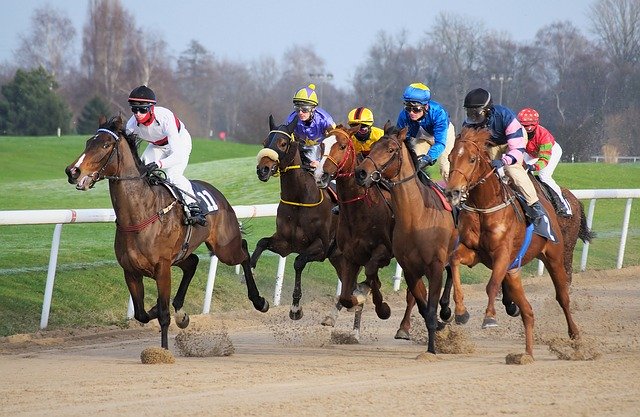How Horse Racing Survived and Thrived During Lockdown
In a world where sport was once at a premium, there was one sport that remained a constant throughout the whole coronavirus pandemic. That was horse racing. As the likes of the NBA and NHL seasons as well as the NCAA basketball tournaments were suspended and cancelled respectively, horse racing maintained its calendar and led from the front as the sporting world looked on in envy.
How did horse racing avoid being disrupted?
The lack of live sporting events pushed the horse racing calendar into an earlier setting in the year, giving punters an extra opportunity to place their bets where they otherwise would have none. And, as the horse racing meets continue to come thick and fast, punters can take advantage of offers and promotions including Del Mar Picks as they look to fill the sports betting gap.
Of course, horse racing hasn’t entirely been stress-free with the illustrious Triple Crown having to be moved around and other meets canceled. But the sport has certainly come into its own during the lockdown, with the Kentucky Derby moving to September, the Preakness Stakes to October and the Belmont Stakes now having already been raced.
But, why has horse racing proved to be so different from other sports? Well, operating a racetrack without spectators is not really a major issue because it doesn’t require a large group of people. And, with online betting coming ever closer to the fore, the sport has been at a huge advantage. Indeed, 90% of the betting pool worldwide comes from off-track betting, though this has somewhat restricted the on-track independent betting companies.
How the emphasis on the horse rules all
With the lack of live sporting events giving horse racing an added pull, the amount of money wagered on the races increased quite drastically as the absence of competition handed the four-legged sport the leg-up it needed.
For other sports, it is humans that are at the forefront. However, for horse racing – where the star of the show is an animal – that isn’t the case with the latest strain of coronavirus said to be not communicable to horses. That makes horse racing unique and certainly puts it on a pedestal when compared to other team games.
How to harness that interest long-term
The sad truth is that horse racing survived and thrived during the lockdown primarily because it had no other competition. The sports vacuum created gave horse racing the exposure it needed to harbor interest in the short-term. Whether or not that can be transformed into something more long-term remains to be seen.
The sport is currently being held back by the lack of mainstream television or streaming distribution outside of the Triple Crown despite the fact that it has the fundamentals to be a North American obsession.
The four-legged sport offers something unique to a nation that is dominated by the ball and the puck and, of course, it was there when many sporting fans needed it most.
Feature Image by Evgeni Tcherkasski from Pixabay

